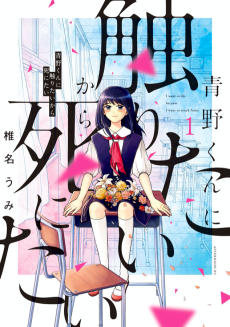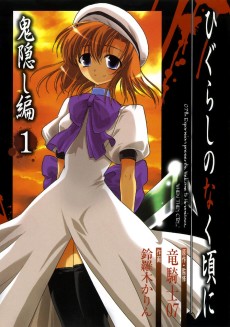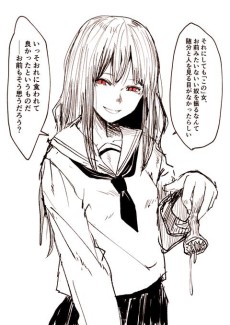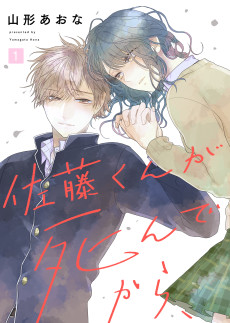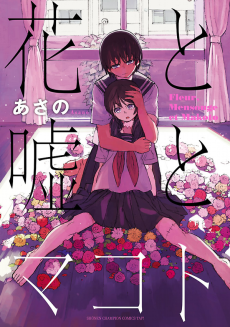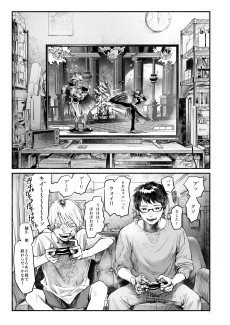HIKARU GA SHINDA NATSU
STATUS
RELEASING
VOLUMES
Not Available
RELEASE
Invalid Date
CHAPTERS
Not Available
DESCRIPTION
Two boys lived in a village: Yoshiki and Hikaru. The two did everything together...until the day Hikaru was encompassed by a mysterious light. That was when everything changed—Hikaru most of all. Yoshiki still wishes from the bottom of his heart to always stay by his side...but is there even a Hikaru left to be with?
(Source: Yen Press)
CAST
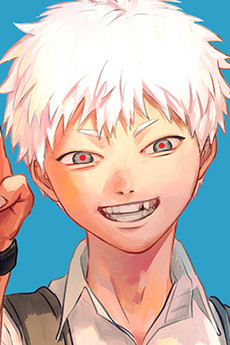
Hikaru Indou
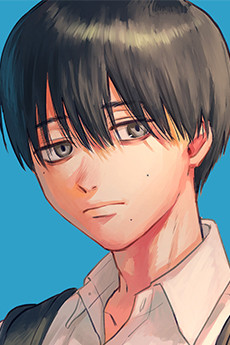
Yoshiki Tsujinaka

Asako Yamagishi

Tanaka

Yuki Tadokoro

Rie Kurebayashi

Yuuta Maki

Kaoru Tsujinaka

Toshinori Tsujinaka

Yoshihiko Matsushima

Hajime Takeda

Matsuura-san

Satou

Tooru Mikasa

Satoko Tsujinaka

Takeda no Jiisan

Kouhei Indou

Hara-sen
CHAPTERS
RELATED TO HIKARU GA SHINDA NATSU
 ANIME HorrorHikaru ga Shinda Natsu
ANIME HorrorHikaru ga Shinda Natsu NOVEL HorrorHikaru ga Shinda Natsu
NOVEL HorrorHikaru ga Shinda NatsuREVIEWS

mywigisonfire
82/100A perfect depiction of what it's like to overthink. One for all of the psychological horror fans.Continue on AniListWhy you should be reading “The summer that Hikaru died”

I am not one to usually read a large amount of manga but recently I have been getting into the art form. I always liked to keep my anime and reading separate, if I was going to read it would have to be a book as I saw manga as a waste of time. Quickly, I have come to realize there is a lot that I'm missing out on.
I came across this manga when looking for psychological horror recommendations and quickly fell in love with the artstyle and interesting premise. The terrifying idea that your friend died and is taken over by something that isn't them but resembles them in almost every way captured me as soon as I read the synopsys.
It won first place in the “Kono Manga ga Sugoi!” (This Manga is Amazing!) 2023 annual magazine and this reward is deserved. The mind behind this manga is the new rising mangaka Mokmok Len and from the quality of this story you would think that they are incredibly prolific. However, this their second manga, their first being period which is a one shot bl. I can't wait to see what they create in the future as “The Summer that Hikaru died” is slowly becoming one of my favorite mangas.The story:
If you're someone who likes a story that is obvious and lays the facts out for you to see, you will most lightly not enjoy this manga. However, if you are like me and love it when the writer keeps things from you, the plot may be more to your taste. The constant wonder that this manga elicits brings me immense joy as I try to figure out what Hikaru is. The only problem I have is with the recent chapters. The introduction of a new character has confused me but hopefully all will be revealed soon.Another element of the plot is the beginnings of a romance between Hikaru and Yoshiki. I won't delve too deeply into this element of the story as it will spoil the plot. Just be aware that it's not something that has been explored in extreme detail as of yet. If you saw the tag of “boys love” and you expect a romance this manga will probably not be for you. I hope that the manga goes into this more in the future as elements of Hikaru and Yoshikis past get revealed. What I like about this relationship is that you rarely see LGBT themes being explored in manga (or in any media) that is plot heavy. For example, recently heart stopper has gained great success. While it is good representation, I feel like if it was about a straight couple people would just see it as another boring romance that follows tropes. This manga however, is a great example of how LGBT themes can be used to enhance a plot in creative ways. Not just to give the CEO of a company brownie points.
Overall, I think the plot definitely has its flaws and some untapped potential but with the way things are going I assume everything that I'm pondering will be revealed.
No matter what, the ending cannot be pleasant. It is a tragedy after all.
Characters:
Yoshiki:
Yoshiki is the straight man out of him and Hikaru. He is incredibly insecure and over thinks all of the time. The prospect that this new Hikaru could be a replacement constantly plays on his mind. The manga does an excellent job of conveying his emotions through art (I will go into this later on) as he spirals and questions his morals. I think Momok Len definitely used this character as a device to showcase the psychological elements of the story because as a reader I can deeply relate to the feeling of having a thought that won't stop spiraling out of control.
Despite the Sci Fi elements of this story I think the real horror is the way in which the events of the story play on the human mind.
There is nothing more terrifying than the way in which your mind plays tricks on you.Hikaru:
Hikaru is a playful character who acts as a foil to Yoshiki's serious demeanor. Despite him often adding light hearted moments to the story, everything that he does is tainted by the fact we don't know what he is.
He could be viewed as being a leech who has become attached to Yoshiki's leg. However, Yoshiki refuses to remove him because he is a replacement for the old Hikaru.
I'm intrigued to find out if the new Hikaru is actually an evil being or just a lonely spirit who needed a vessel to occupy. Will he be misunderstood or rotten at his core?
Hikaru is another well written character and I would say that him and Hikaru's relationship is definitely a highlight of the manga for me.Side characters: The group of friends add some more light hearted moments to the manga but I think they need more development. I can't wait to see more of them as the story goes on.
Art:
By far my favorite thing about this manga is the art. Mokmok Len does not rely on gore to show horror but instead uses patterns and swirls. This leads to some amazing visuals that are reminiscent of Junji ito's work.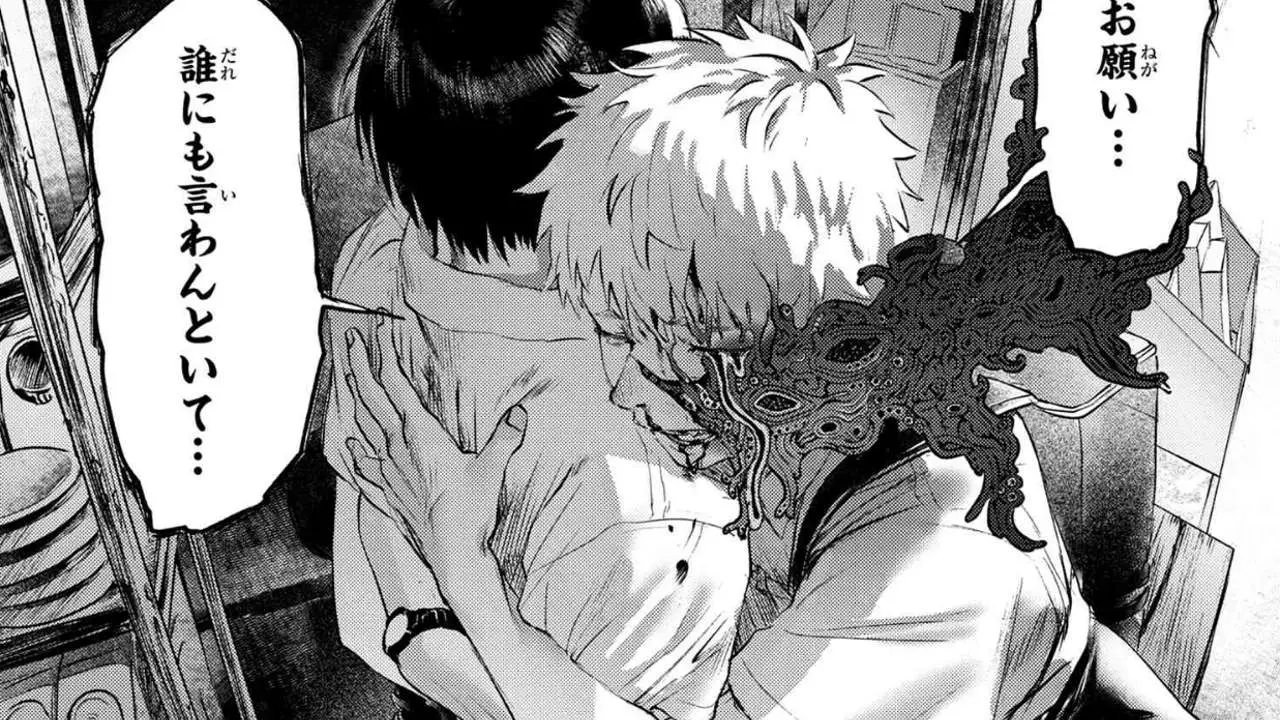
The characters themselves are drawn beautifully and the artist perfectly captures their emotions and personality through the vibrant drawings. I think the slightly rounder, innocent faces of the characters add to the tragedy of it all as i'm constantly reminded that they are only in high school.
Yoshiki's emotions are conveyed masterfully. The art itself speaks louder than words as metaphorical representations of his overthinking almost jump out at you.Conclusion:
If you are a fan of psychological horror or are looking for something with LGBT themes that isn't the normal story you would come across I would recommend this manga to you. Since it isn't incredibly long it doesn't take too long to read and it would be a shame if you were to miss out on a manga that I believe will soon become incredibly popular.For now, I rate this an 8/10 but I believe this score may get bigger as the story continues.

Girl0Gun
90/100FR/EN ► The Horror of HomosexualityContinue on AniList« The Summer When Hikaru Died » — a read without any particular expectations, sitting on the train with every other scan page loading slowly. I was expecting a typical BL (Boys’ Love) story, and I was surprised to find an echo of "Éclat d’Âme", which, though lacking subtlety, already possessed that beautiful expressive art style and dreamlike quality; a dreaminess that borders on the nightmarish in this work. I read this nonsense very quickly as an allegory of homosexuality through the lens of infantile desire. Not knowing much about the mangaka, I have no intention of passing judgment, but whether explicit or not, the subtext of the work is a pure delight to analyze.
Honestly, I love the panels, and I won’t lie—the linework here and there is wildly pleasing to the eye. I wouldn’t say it’s refreshing or exceptional, but as someone who suffers from recurrent anxiety attacks, I find that these explicit drawings capture those states very well, alongside the general “overthinking,” the sensation of suffocation, invasion, lack of air, the feeling that something surrounds us, sticks, then fuses with our flesh—the miserable state of being at the mercy of words that do not belong to us, viscous and sticky to the mind like the grease of a necrotic corpse of oneself. If the story itself won’t convince you, what can be said about the panels that accompany the mangaka’s linework? The placement of the speech bubbles, which are fully integrated into the panel? The scene? The lives of the characters? I am someone with severe social anxiety, and if to you this virus and bubble placement looks like a rough draft, for me it is my everyday life. The people I encounter daily are Hikaru dead in my eyes, all those bubbles are their voices oppressing me. This is how I realized the beauty of this manga: the “show don’t tell” is perfect to the point that anyone who has ever experienced this silent pressure will see it illustrated for the first time. Their arrangement contributes to the panel, even the characters themselves, and doesn’t just look like an image slapped on the side that doesn’t hide the art too much.
In my reading, Hikaru is the one who carries the parasite, often depicted in a near-pathological heterosexuality—ironically, he is obsessed with it from a young age and dies from it in a perfectly absurd way. If it isn’t explicitly shown through scenes of frustration or repression, there are at least some codes present, especially in relation to his childhood friend. The moments showing memories of a “normal” Hikaru are often tied to passages where he talks about his attraction to women. This hideous, terrifying, yet pleasurable thing inside him that spreads and makes him fall in love—this parasite—is exactly how homosexuality is perceived: “an internal anomaly,” a contamination that must not be revealed, which only appears and explodes in intimate moments shared emotionally with someone, and even then remains deeply shameful. Hikaru stops being normal the moment he stops thinking about women and instead thinks about his best friend—to the point of feeling like he is dying.
« The summer when Hikaru Died », une lecture sans aucune attente particulière, assise dans le train avec une page de scan sur deux qui se générais: je m’attendais à un bl classique » et j’ai été surprise de retrouver un écho « d’Éclat d’Âme » qui a défaut de la subtilité possédait déjà ce joli dessin expressif et ce côté onirique ; onirisme qui relève du cauchemardesque dans cette œuvre car j'ai lu ce charabia très rapidement comme une allégorie de l'homosexualité dans l'interprétation d'un désir infantile. Ne connaissant pas plus que ça le mangaka, je n'ai pas d'intention à décerner à celui ou celle-ci mais que ce soit directe ou non le sous-texte de l’œuvre est un pure délice à analyser.
Très honnêtement j’adore les planches, et je ne vais pas mentir le traits par ci et là est follement agréable à l'œil, je ne dirais pas que c’est rafraîchissant ou exceptionnel mais en tant que personne ayant des crises d’angoisses récurrentes, je trouve que ces dessins explicites très bien ces états, en plus de « l’overthinking » en général, la sensation d'étouffement, d'envahissement, le manque d'air, la sensation que quelque chose nous entoure, colle puis se fuse dans notre chaire, l'état lamentable d'être à la merci des mots qui ne nous appartiennent pas, visqueuse et collante à l'esprit comme le serait la graisse d'un cadavre de nous même nécrosé. Si l’histoire ne serait vous convaincre, que dire des cases qui accompagne le trait de le ou bien la mangaka ? Du placement des bulles de texte faisant intégralement parti de la planche ? De la scène ? De la vie des personnages. Je suis une personne atteinte d’une sévère anxiété sociale et si pour vous, ce virus et ce placement de bulle peut ressembler à un brouillon, pour moi il s’agit de mon quotidien, les gens de tous les jours sont des Hikaru mort à mes yeux, toutes ses bulles sont leurs voix qui m’oppressent, c’est comme ça que j’ai réalisé la beauté de ce manga : le show don’t tell y est parfait, au point de permettre à quiconque ayant déjà expérimenté cette pression silencieuse de la voir illustré une première fois, leur agencement participe à la planche, voire de ses personnages, et ne ressemble pas juste à une image insérer sur un côté qui ne cache pas trop le dessin.
Dans ma lecture, le fait qu'Hikaru est celui qui porte le parasite, souvent dépeint dans une hétérosexualité quasi-maladive, ironiquement, il en ai obnubilé dès son jeune âge et en mourra de manière parfaitement absurde. Si ce n'est pas explicité par des scènes de frustration ou de refoulement ça en a déjà au moins quelques codes en face de son ami d'enfance. Les moments des souvenirs d’un Hikaru « normal » sont souvent liés à des passages où il parle de son attirance pour les femmes. Cette chose hideuse, terrifiante et plaisante à la fois à l’intérieur de lui qui se répand et qui le rend amoureux, ce parasite, c’est typiquement la façon dont est perçu l’homosexualité « une anomalie interne », une contamination, qu’il ne faut pas ressortir, qui n’apparaît et n’explose que dans l’intime sous l’intensité émotionnelle partagé avec une personne et même dans cette intimité elle reste profondément honteuse. Hikaru cesse d'être normal lorsqu'il cesse de penser au femme et pense plutôt à son meilleur ami, jusqu'à s'en sentir mourir.
SIMILAR MANGAS YOU MAY LIKE
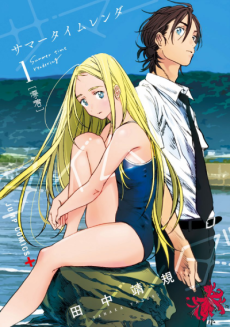 MANGA ActionSummer Time Render
MANGA ActionSummer Time Render MANGA DramaBoy meets Maria
MANGA DramaBoy meets Maria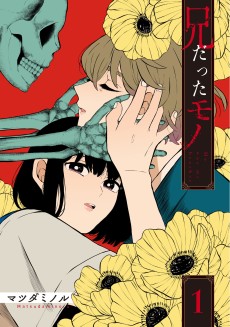 MANGA HorrorAni datta Mono
MANGA HorrorAni datta Mono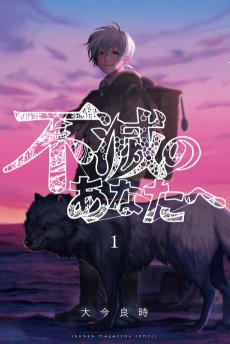 MANGA AdventureFumetsu no Anata e
MANGA AdventureFumetsu no Anata e
SCORE
- (4.1/5)
TRAILER
MORE INFO
Trending Level 11
Favorited by 2,008 Users

